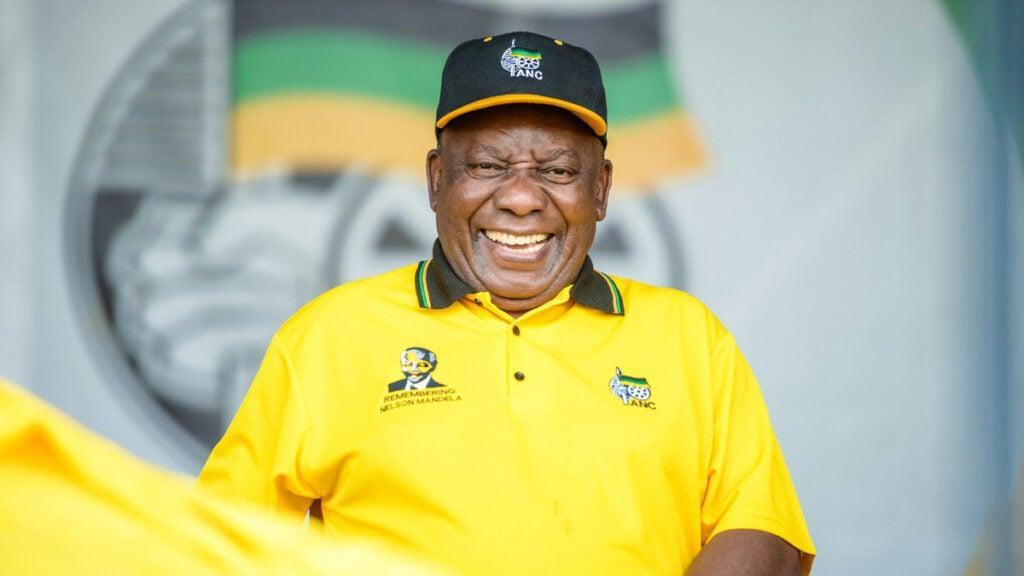Africa-Press – South-Africa. The African National Congress (ANC) national conference in 2027 will prove challenging both for the liberation movement and the country, with there being no clear front-runner for the top job.
In particular, it could spell the end of the Government of National Unity (GNU) in its current form, with some candidates for the ANC’s top job not being supportive of having the Democratic Alliance (DA) as a ruling party.
There have already been several calls from prominent ANC members for the party to dispense with the DA as a ruling partner.
Investors are watching the ANC’s succession battle closely, with it potentially bringing an end to the GNU. This would effectively crush the optimism surrounding the country since formation of the coalition government in June 2024.
Furthermore, these investors are increasingly aware that the GNU will need more time to implement its reform agenda, which is progressing terribly slowly.
This is feedback from Old Mutual Investment Group (OMIG) portfolio manager Jason Swartz, who outlined the potential implications of the ANC’s next national conference at the asset manager’s most recent quarterly update.
Swartz explained that the ANC national conference has functioned as an auction for the past twenty years, with whoever raises the most funding typically getting the top job of ANC President.
However, the next conference may prove more challenging to call, with the outcomes being equally difficult to mitigate against.
The ANC has a succession challenge, with many of its current leadership already quite old and none of the current candidates carrying the weight, popularity, and prominence of Cyril Ramaphosa.
Historically, the current vice president of the ANC would be expected to assume the top job at the next national conference.
However, with suspicions of corruption surrounding the current vice-president, Paul Mashatile, the path to the presidency appears to be wide open. Mashatile also lacks significant support outside of Gauteng, Swartz said.
Some of Mashatile’s competitors include the current secretary-general, Fikile Mbalula, who is ambitious and has strong support from the ANC’s Youth League.
Mbalula, however, has a record of being an incompetent minister and is associated with a decline in the discipline of ANC members during his time as secretary-general.
Less prominent candidates include Ronald Lamola, who is a rising star in the ANC and is seen as very capable, but lacks strong support in the party.
Panyaza Lesufi is also rumoured to be a potential candidate, as well as current electricity minister Kgosientsho Ramokgopa.
Both of these candidates would bring an end to the GNU, as the DA has made it clear it would not support members of the Communist Party for President.
“The 2027 ANC national conference is going to be a wild card in terms of the GNU’s future. There is very little insight for investors to work with,” Swartz said.
“This, for us, kind of puts a time period on the viability of the GNU, particularly if the ANC President is not aligned to the philosophy of the coalition.”
GNU needs a win
Old Mutual Investment Group portfolio manager Jason Swartz
Swartz explained that the ANC’s national conference is also increasingly coming into view for investors because of ongoing tensions within the GNU.
The coalition agreement came under increasing pressure in 2025, with fears of it collapsing resulting in the rand weakening rapidly at points during the year.
While much of the reforms being implemented by the GNU began before it was formed, the agreement is still vital for these changes to be seen through.
In particular, the GNU is vital for the continued reform of South Africa’s electricity and logistics sectors, with both set to be opened to private participants.
These have been some of the minor wins for the GNU so far, with load-shedding being significnatly reduced and Transnet’s performance stabilising.
While these reforms seem to have a momentum of their own, they are progressing terribly slowly and need the GNU to see through to their end, Swartz said.
The reforms of restructuring Eskom and Transnet have slowed, with not enough attention being given to the logistics sector, Swartz said.
Eskom has failed to meet its 70% energy availability factor (EAF) target, and progress towards it has slowed, with Transnet’s performance stabilising.
These structural constraints are still the biggest handbrake on South Africa’s economic growth and, without significant reform, threaten to ensure the country’s economy remains stagnant.
The GNU is also still important for investor sentiment towards South Africa, with it being seen as relatively more business friendly than any other democratically-elected government in the country’s history.
However, the coalition may have a boon in the form of a commodity boom that has the potential to significantly boost the government’s tax revenue.
This will give the coalition government more freedom to invest heavily in driving economic growth through infrastructure investment or pay down the government’s debt.
Much depends on how the funds are used, with previous windfalls being spent on increased government consumption and, thus, did not translate into faster economic growth or a stronger financial position for the state.
For More News And Analysis About South-Africa Follow Africa-Press






